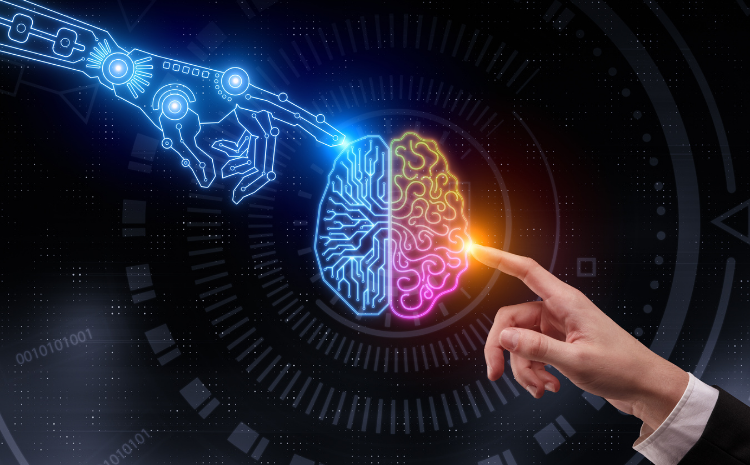AI Development Challenges: Beyond Just Financial Limitations
The rapid development of artificial intelligence (AI) has captured the world’s attention, ushering in breakthroughs in industries ranging from healthcare to finance. However, as innovation in this sector accelerates, it’s becoming increasingly evident that AI development challenges extend far beyond financial limitations. While funding remains a critical factor, other roadblocks, such as infrastructure, talent acquisition, and ethical considerations, are beginning to take center stage.
In this article, we explore the multifaceted hurdles hindering AI progress, discuss potential solutions, and examine how industries can adapt to thrive in this evolving landscape.
What Are the Core AI Development Challenges?
In the rush to build more capable AI models, many assume that throwing money at the problem solves everything. While funding can fuel research, expand computational resources, and attract talent, it addresses only one dimension of the challenges facing AI development.
1. The Infrastructure Bottleneck
One significant hurdle is the lack of scalable, efficient infrastructure needed to support advanced AI training. Large language models (LLMs) like OpenAI’s GPT or Google’s Bard require massive computational resources, and the sheer energy consumption involved has raised environmental concerns.
Even companies with deep pockets are starting to face supply chain issues tied to GPUs, high-performance computing clusters, and data storage solutions. NVIDIA, a key player in AI hardware development, has reported demand far outstripping supply, leaving some startups scrambling to secure their share of resources.
“The biggest bottleneck today is not just compute availability but creating a meaningful balance between cost, speed, and energy consumption,” says a Harvard Business School report on AI scalability challenges.
As a potential solution, developers are turning to more efficient algorithms that optimize hardware usage. Companies like DeepMind have been working on innovations like AlphaTensor to enhance how computations are performed.
2. The Talent Shortage Crisis
Another challenge is the global shortage of skilled AI engineers and data scientists. According to a recent report by World Economic Forum, the demand for AI talent has grown exponentially, but the supply remains dangerously low.
The issue isn’t just about basic programming skills. The most sought-after talent must have deep expertise in machine learning frameworks, experience deploying AI models in real-world settings, and a solid understanding of ethics and governance.
One solution gaining traction is team growth through reskilling initiatives. Companies like Google and IBM are offering AI boot camps to upskill internal talent. Similarly, academic institutions are creating highly specialized courses targeted at AI’s real-world applications.
Balancing Ethical and Social Responsibilities
Beyond infrastructure and talent limitations, another fundamental barrier in AI development is the growing list of ethical dilemmas. Algorithms are designed to operate on data, yet biases and privacy issues are prevalent in many datasets, which can perpetuate systemic discrimination in AI’s outputs.
1. The Need for Ethical Guardrails
The lack of standard ethical guardrails has led to trust erosion across AI applications, especially in sensitive fields like hiring or criminal justice. AI outcomes cannot always be explained, which gives rise to fears involving “black-box decisions” and creates resistance to adoption.
Organizations such as OpenAI are actively working on developing explainable AI (XAI) models to enhance transparency in decision-making. However, these models are still in experimental phases and vary widely in effectiveness across industries.
Likewise, AI governance frameworks are being discussed globally, with the aim of producing universal guidelines that prioritize human interests.
2. Addressing Data Privacy Concerns
The battle over data privacy has intensified in the AI sector. Major AI models gather and process massive amounts of individual consumer data, raising red flags regarding their compliance with data protection laws. The global regulatory landscape varies widely, with Europe’s GDPR guidelines serving as the gold standard.
Companies building AI solutions are now rethinking data governance, introducing federated learning techniques to mitigate these concerns. Decentralized computation allows for training on local devices without transferring sensitive data to central servers, aligning better with privacy mandates.
How Companies Can Overcome These Barriers
Despite these challenges, companies are finding creative ways to overcome obstacles and keep the momentum in AI research and innovation alive.
1. Collaborations and Partnerships
The complexity of AI systems often requires multi-disciplinary expertise. In response, businesses are forging partnerships with universities and research organizations to co-develop models. These collaborations are especially beneficial in addressing talent shortages and accelerating foundational research.
For example, partnerships between healthcare organizations and AI firms have enhanced efforts to develop diagnostic tools for early disease detection, showcasing the potential of collaboration-driven R&D.
2. Rethinking AI Frameworks
Outdated frameworks are major barriers to broader deployment of AI technologies. Companies must adopt a more agile approach, frequently retraining models to improve responsiveness to changing data environments. Open-source tools like TensorFlow and PyTorch are speeding up this process, enabling smaller organizations to compete at scale.
Final Thoughts: Solving AI Development Challenges
It’s clear that AI development challenges stretch far beyond funding; they require an integrated approach addressing infrastructure hurdles, ethical concerns, and skill gaps. The road ahead will involve collaboration, regulation, and innovation in equal measure. By addressing these issues head-on, AI developers and businesses alike can ensure that the transformative power of artificial intelligence is realized responsibly and sustainably.
If you found this article helpful, be sure to explore more exclusive industry insights on ZexNews.





